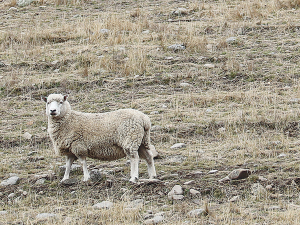The dry weather in some parts of the North Island has received medium-scale adverse event classification from the Government.
Northland, Taranaki, Horizons and Greater Wellington regions including the Wairarapa join parts of the South Island that were classified earlier this month.
Agriculture Minister Todd McClay says dry weather conditions are persisting in many parts of the country.
McClay says up to $80,000 will be provided to Rural Support Trusts covering the North Island regions.
“Extremely dry and difficult conditions are affecting communities across the North Island, and conditions are not expected to improve in the short-term.
“The classification unlocks further support for farmers and growers, including tax relief, and it enables MSD to consider Rural Assistance Payments.
“It comes on top of the $90,000 allocated to Rural Support Trusts in the South Island to ensure extra support was available.”
McClay and Rural Communities Minister Mark Patterson have been visiting affected regions to meet with farmers, growers, and sector groups.
“Farmers across parts of the lower North Island, including Wairarapa and the Tararua district, are still recovering from Cyclone Gabrielle in February 2023,” notes Patterson,
“Some farm dams are starting to dry up and winter supplementary feed is already being fed to livestock. The Ministry for Primary Industries (MPI) has been working with sector groups, regional bodies, and farmers to prepare for El Niño since its arrival last year; and continue to monitor the situation to determine where additional support is needed.
“MPI will continue to work closely with local rural advisory groups, drought committees and Rural Support Trusts to determine if additional support is needed.”
Farmers and growers who require support are encouraged to contact their local Rural Support Trust on 0800 787 254.



















